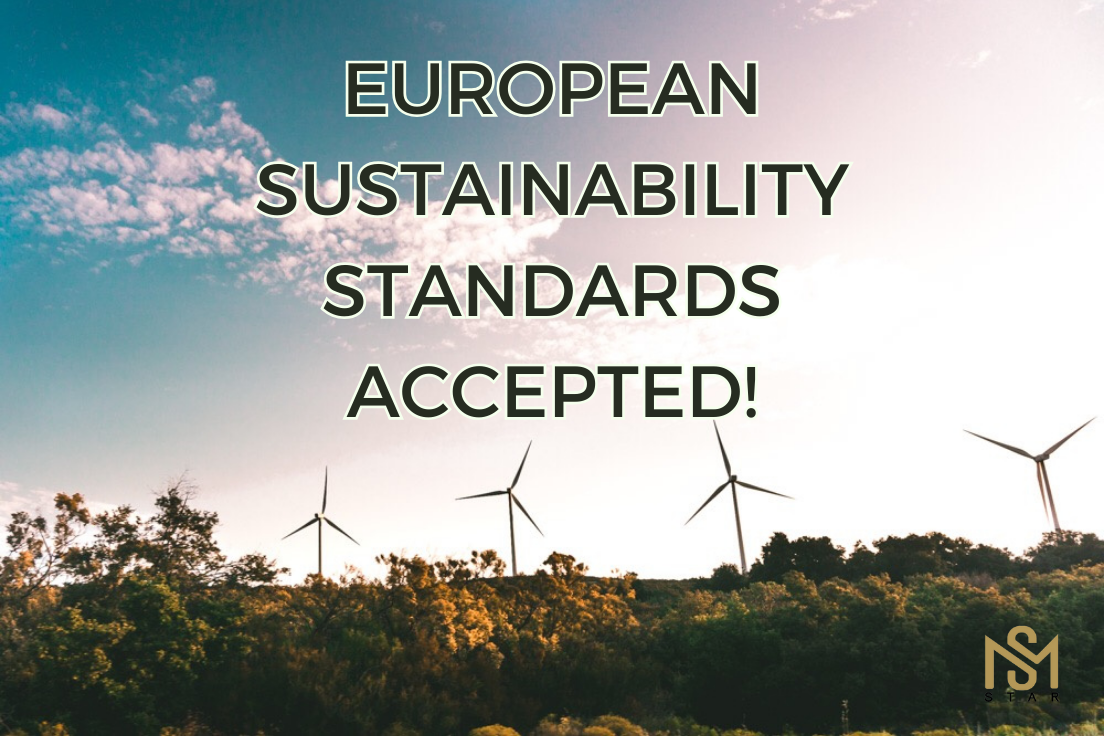EUROPEAN SUSTAINABILITY STANDARDS ACCEPTED!
In the 2nd quarter of 2023, the European Commission adopted the European Sustainability Reporting Standards (ESRS) for use by all companies subject to the Corporate Sustainability Reporting Directive (CSRD). In line with this decision, all major companies and publicly traded companies will publish regular reports on the social and environmental risks they face and how their activities affect people and the environment.
Background
On 5 January 2023, the Corporate Sustainability Reporting Directive (CSRD) came into force. This new directive modernizes and strengthens the rules on social and environmental information that companies must report. With this Directive, it has become mandatory for listed Small and Medium-sized enterprises (SMEs), as well as a wider group of large companies, to report on sustainability. The new rules will enable investors and other stakeholders to access the information they need to assess companies’ impact on people and the environment, and enable investors to evaluate financial risks and opportunities arising from climate change and other sustainability issues. Companies subject to CSRD will be required to report in accordance with European Sustainability Reporting Standards (ESRS).
Non-Financial Reporting Directive
The rules introduced by the Non-Financial Reporting Directive (NFRD) will remain in force until companies are forced to implement the new rules of the CSRD. Under the NFRD, large companies are required to publish information on:
- Environmental issues
- Social issues and treatment of employees
- Respect for human rights
- Fighting corruption and bribery
- Diversity on company boards (in terms of age, gender, education and professional background)
These reporting rules apply to large public interest companies with more than 500 employees. This covers approximately 11,700 large companies and groups across the EU.
Sustainability Reporting Standards
EU Sustainability Reporting Standards (ESRS) represent the latest mandatory guidelines implemented by the European Union. These standards apply to companies falling within the scope of the Corporate Sustainability Reporting Directive (CSRD), requiring them to align their reporting practices accordingly. The main purpose of these standards is to guarantee that businesses within the defined scope provide consistent, relevant and reliable sustainability data. Additionally, the ESRS aims to provide clear guidance on the specific matters that companies are expected to include in their reports.
Affected companies
All companies falling within the scope of the EU Corporate Sustainability Reporting Directive (CSRD) will be obliged to synchronize their corporate sustainability and environmental, social and governance (ESG) reporting with the ESRS framework.
CSRD covers:
Large companies that exceed at least two of the following three criteria:
- 250 employees
- Net turnover of 40 million €
- 20 million € assets.
Capital Market Small and Medium Enterprises (SMEs), according to the EU (Directive 2013/34/EU), companies are considered small if they do not exceed two of the following conditions:
- 50 employees,
- Net turnover of 8 million €
- 4 million € assets.
It is defined as microbusinesses that do not exceed two of the following three thresholds:
- 10 employees
- Net turnover of 700,000 €.
- 350,000 € assets
Businesses in this category are the only businesses that do not fall under the CSRD and are therefore not expected to report under the ESRS.
Timeline
1 January 2024: Companies currently required to report under the EU’s Non-Financial Reporting Directive (NFRD), i.e. large-listed companies with more than 500 employees, will need to start reporting under the ESRSs for the 2024 financial year.
1 January 2025: Large companies covered by CSRD are required to report under ESRS starting from fiscal year 2025.
1 January 2026: SMEs and other small and non-complex organizations must implement CSRD and comply with ESRS from fiscal year 2026. However, these companies will have the option to voluntarily waive the reporting rules for fiscal years 2026 and 2027.
This Regulation (EU), handed over by the Commission to complement Directive 2013/34/EU of the European Parliament and of the Council on Sustainability Reporting Standards, will enter into force upon its publication in the Official Journal.


